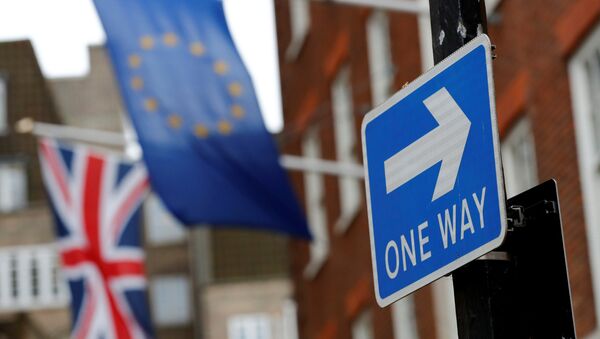According to the results of the poll, published late on Monday, 54 percent of respondents would prefer not to leave the bloc if the referendum were held the next day, a 6 percent increase compared to the results of the 2016 vote. Meanwhile, only 46 percent of the respondents said they would vote to leave the bloc in a new referendum.
The poll also revealed that 33 percent of respondents would reject the Brexit deal currently proposed by the government, while 26 percent would accept it. Thirty-four percent of the UK citizens were unable to give a definite answer on the matter.
READ MORE: May Says Brexit Deal '95% Ready' Amid Reports EU Seeks Irish Backstop Compromise
A total of 44 percent of respondents also believed that Brexit would have a negative impact on country's economy and another 38 percent said that leaving the bloc would have a financial impact on their households.
The United Kingdom voted to leave the European Union in a referendum in June 2016. The country was divided almost evenly between Brexit supporters and those in favor of remaining in the bloc, with the Leavers winning by a very narrow margin of around 3 percent. The Brexit negotiations between London and Brussels officially started in June 2017.
The Brexit negotiations have turned out to be tougher than expected for both sides, with neither able to agree on major points such as the Irish border and post-Brexit economic relations. The deal proposed by the UK government has been harshly criticized in the country, even among members of the ruling Conservative party. Meanwhile, the prospect of leaving the bloc without a deal looms large as the negotiations are scheduled to conclude by the end of March 2019.



